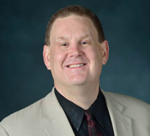How to get the most out of realizing you are wrong by using Bayes’ Theorem to update your beliefs

You don't treat all of your beliefs equally.
For some, you see them as either true or false, correct or incorrect. For others, you see them as probabilities, chances - odds. In one world, you live in certainty, in the other, uncertainty.
In this episode we explore why you gladly update some beliefs yet refuse to update others.

Download - iTunes - Stitcher - RSS - Soundcloud
This episode is brought to you by the MIT Press, publishing Suzana Herculano-Houzel's book The Human Advantage: A New Understanding of How Our Brain Became Remarkable. Read more about The Human Advantage and a few other new science, philosophy, language, and technology titles at mitpress.com/smart.
This episode is also sponsored by Casper Mattresses - obsessively engineered American-made mattresses at a shockingly fair price. And now, you can get $50 toward any mattress purchase by going to
casper.com/sosmart and using code sosmart
This episode is also brought to you by The Great Courses Plus. Get unlimited access to a huge library of The Great Courses lecture series on many fascinating subjects. Start FOR FREE with The Fundamentals of Photography filmed in partnership with The National Geographic and taught by professional photographer Joel Sartore. Click here for a FREE TRIAL.
If you love the show and want to support its continued production, become a patron! Get episodes one-day-early and ad-free as well as show extras and original content just for patrons. Head over to the YANSS Patreon Page for more details.

In this episode you will learn from two experts in reasoning how to apply a rule from the 1700s called Bayes' Theorem not only to numbers you can plug into formulas, but also to the beliefs you carry around in order to make sense of the world.
 Julia Galef is the president and co-founder of the Center for Applied Rationality, a non-profit organization that training people and organization to make better decisions. She is also the host of the Rationally Speaking Podcast and has written for Slate, Science, Scientific American, and Popular Science.
Julia Galef is the president and co-founder of the Center for Applied Rationality, a non-profit organization that training people and organization to make better decisions. She is also the host of the Rationally Speaking Podcast and has written for Slate, Science, Scientific American, and Popular Science.
 Neil A. Manson is a philosopher and professor who teaches at the University of Mississippi. He teaches logic, philosophy, religion, philosophy of science, and medical ethics. His research concerns the design argument, and he assembled an anthology on the topic titled: God and Design: The Teleological Argument and Modern Science.
Neil A. Manson is a philosopher and professor who teaches at the University of Mississippi. He teaches logic, philosophy, religion, philosophy of science, and medical ethics. His research concerns the design argument, and he assembled an anthology on the topic titled: God and Design: The Teleological Argument and Modern Science.
In the show, Manson explains the math side of Bayes' Theorem, and Galef tells us how Bayes' Theorem makes it possible to see all of your beliefs as being in "grayscale," as neither black nor white, neither 0 nor 100 percent, but always somewhere in between, as a shade of gray reflecting your confidence in just how wrong you might be given the evidence at hand.
In every episode, after I read a bit of self delusion news, I taste a cookie baked from a recipe sent in by a listener/reader. That listener/reader wins a signed copy of my new book, "You Are Now Less Dumb," and I post the recipe on the YANSS Pinterest page. This episode's winner is Andreas von Normann who submitted a recipe for Navette Provencale cookies. Send your own recipes to david {at} youarenotsosmart.com.
Links and Sources
Download - iTunes - Stitcher - RSS - Soundcloud
An Intuitive Explanation of Bayes' Theorem by Luke Muehlhauser
Center for Applied Rationality
Image Source: Popular Science Monthly Public Domain - Wikimedia Commons